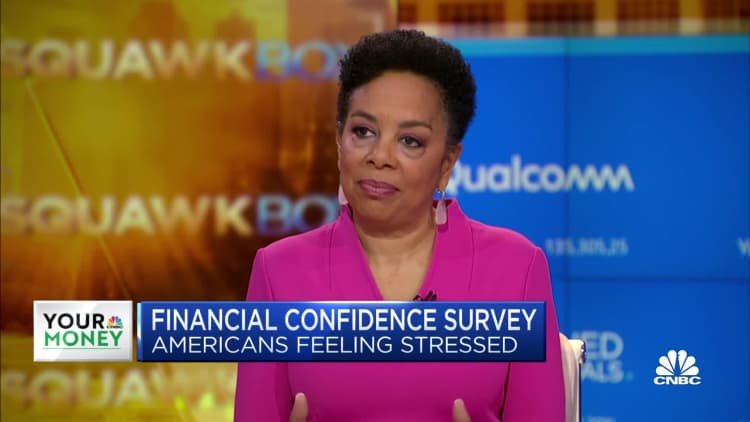
For Americans to feel “financially comfortable,” 1 in 5 say they’d need $1 million, according to the CNBC Your Money Financial Confidence Survey, conducted in partnership with Momentive.
The description “financially comfortable” is subjective, and will mean different things to different people. Some might be thinking about current bills or debt they want to pay off, while others might be focused on long-term expenses or retirement goals.

Here’s the breakdown of the results, based on the amounts survey respondents selected:
- $10,000: 8%
- $25,000: 14%
- $100,000: 36%
- $500,000: 18%
- $1 million: 20%
- No answer: 4%
Nearly 75% of respondents say they need $100,000 or more to feel financially comfortable, with 20% selecting $1 million. That majority is steady across all income levels, although respondents earning six figures are more likely to say they need $100,000 or more.
Americans are feeling the pinch with rising costs
Increasingly, there are signs that Americans are struggling to keep up with additional costs.
Credit card debt hit an all-time high in 2022, 18.5% more than a year earlier, according to a recent report by credit bureau TransUnion.
And more people are saying it’s “somewhat” to “very difficult” for them to pay their usual bills in the last seven days, a 25% increase compared with a year earlier, according to the Census Bureau’s most recent Household Pulse survey.
Financial vulnerability is felt across income levels, too: A majority of Americans earning less than $100,000 say they live paycheck to paycheck, while 32% earning more than six figures say the same, according to CNBC and Momentive’s survey.
As well, 53% of survey respondents say they don’t have any emergency savings. Of those that do, just over 1 in 4 have less than $5,000 saved up. That’s likely not enough money for most people, as certified financial planners commonly recommend setting aside three to six months worth of expenses for emergencies.
The survey of 4,336 respondents was weighted for age, race, sex, education and geography using the Census Bureau’s American Community Survey to reflect the demographic composition of the United States for those age 18 and over.
DON’T MISS: Want to be smarter and more successful with your money, work & life? Sign up for our new newsletter!
Check out: 6 signs you have too much debt—and how to pay it off

